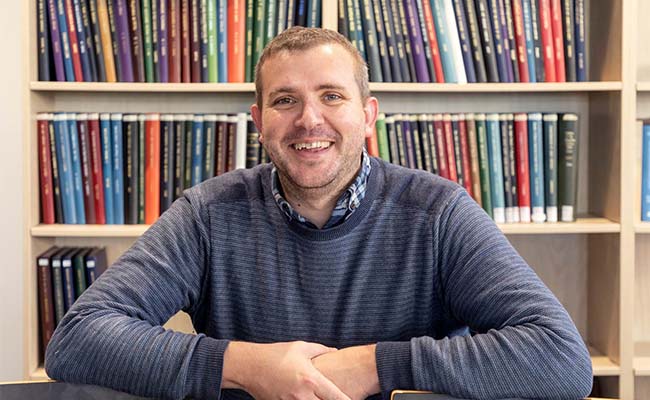
Biochemistry researcher Dr Nathan Kenny.
No one looks at kuku in quite the same way as Dr Nathan Kenny (Ngāi Tahu, Te Ātiawa) from the School of Biomedical Sciences.
Based in the Department of Biochemistry, the recent Marsden Grant recipient is currently exploring what makes some kuku (green-lipped mussels) more resilient than others and will be working alongside mana whenua and partners at the Cawthron Institute in Nelson.
“Kuku are vital to our ecosystems,” Dr Kenny says.
“This work will not only be revolutionary for understanding the species development and clues to the source of their resilience, but it will also greatly assist in conservation and aquaculture efforts, providing fundamental knowledge to preserving this fascinating and treasured species.”
“Being taonga of cultural and economic importance, it is imperative that we identify why certain individuals within the species fair better when facing challenges like climate change, temperature extremes and ocean acidification.”
Though the source of this resilience is unknown, differences in the early development of kuku are believed to be a strong influence.
Using cutting-edge approaches, led by single-cell RNA sequencing, Kenny plans to pinpoint the key qualities exhibited by resilient kuku.
He says researchers now have the technical means to discover differences between embryos of resilient and vulnerable kuku at the cellular level and that single-cell sequencing allows the investigation of differences in cellular identity at an unparalleled resolution.
This work is “highly novel in non-model organisms” and will reveal the key resilience qualities in the basic biology of the kuku.
These qualities could include the resources provided by the mother, or genes activated in the initial stages of development and Kenny plans to figure this out by tracing these influences throughout the kuku's development.
“Tracing the kuku's life, all the way through to their maturation, will provide an unparalleled window into the growth of this species and at cellular-level detail,” Dr Kenny says.
“This work will not only be revolutionary for understanding the species development and clues to the source of their resilience, but it will also greatly assist in conservation and aquaculture efforts, providing fundamental knowledge to preserving this fascinating and treasured species.”
Dr Nathan Kenny joined the University of Otago to lecture and research in September of this year, after having been awarded a Rutherford Discovery Fellowship in 2020 on his research titled, “Stretched mussels: tracing the genetic basis of resilience to climate change and ocean acidification in cultured green-lipped mussels (kuku) from genome to embryo”.
The School of Biomedical Sciences won 11 of the 23 Marsden Grants awarded to the University of Otago this year, which totals at just over $8.7 million and is more than half of the funding that the University received overall.
Nathan Kenny: Rutherford Discovery Fellowship
Kōrero by Kelsey Schutte, School of Biomedical Sciences Communications Adviser